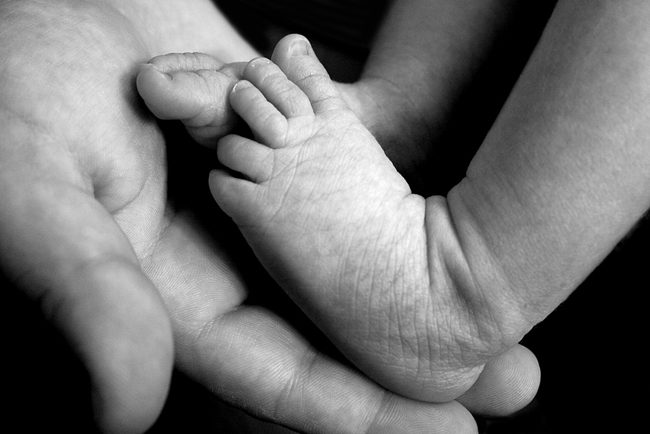 |
| “Baby In Hand” by Aldo Risolvo |
Kumara Raja Sundar
North Carolina, USA
In the midst of the commotion, I felt uncomfortable knowing that we were giving up on a life. The attending, the two residents, the nurse, and I did not try to stop death. The baby was in breech presentation and was unlikely to survive the stress of a vaginal delivery. The mother was fully dilated. An immediate C-section would have been required to ensure the baby’s survival, but the mother did not want it. We never discussed why, but we assumed it was because of trisomy 18, a condition where the developing baby has an extra chromosome. The mortality for babies born with trisomy 18 is high. About 50% of babies live longer than a week and only five to ten percent of children survive beyond a year.
We had never discussed such a situation during my medical education, although we had similar discussions with patients diagnosed with terminal cancer. In both situations the odds were against surviving, but there were occasional anecdotal miracle stories of survival. Should we not still try to stave off death to the best of our abilities? Yes, the odds are slim, but how does one know that this is not the life that is a miracle? At that moment, I wondered if we were committing a crime of omission by not using all our skills to prevent a human being’s death.
We watched the baby’s feet come out first. They were wiggling, warm and red. Then they turned blue. We waited. The baby was dead, but the head had not yet been delivered. We waited. We waited until the torso passed, and the uterus stopped contracting. The head finally passed. The limp and lifeless baby was placed on the mother’s chest. The mother and father cried. I stood still. The attending in broken voice said, “I’m sorry. I know it’s not fair.” The chief resident and resident had no visible reaction. They would not sleep that night no matter how much melatonin they took. None of us had the emotional refuge in knowing that at least we had tried to stop it, that we fought against death and suffering, that we were doing something, anything. The resident later said, “It is what it is.”
KUMARA RAJA “RAJ” SUNDAR is a fourth year medical student at UNC-Chapel Hill currently applying for a Family Medicine residency. He is interested in developing systems that address patients’ complex needs and implementing a model that focuses on integrating primary care and public health. He enjoys writing and mindfulness during his free time.

Leave a Reply